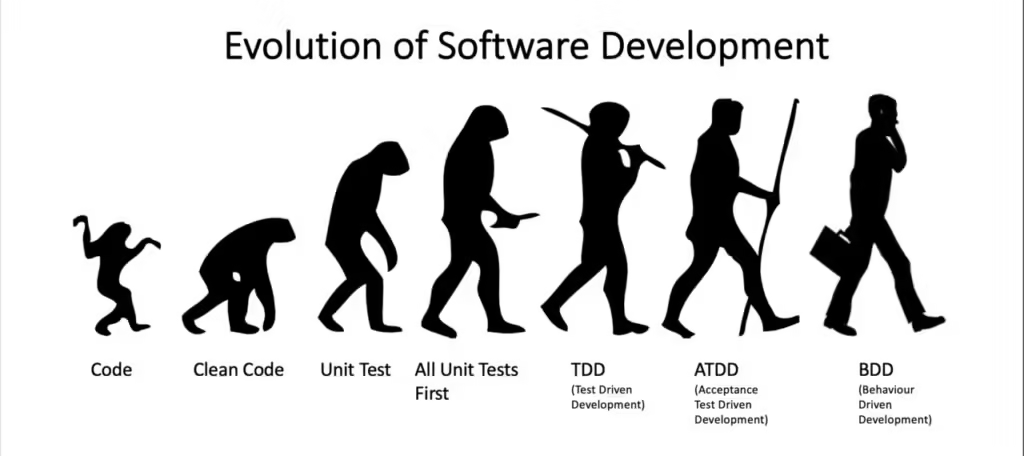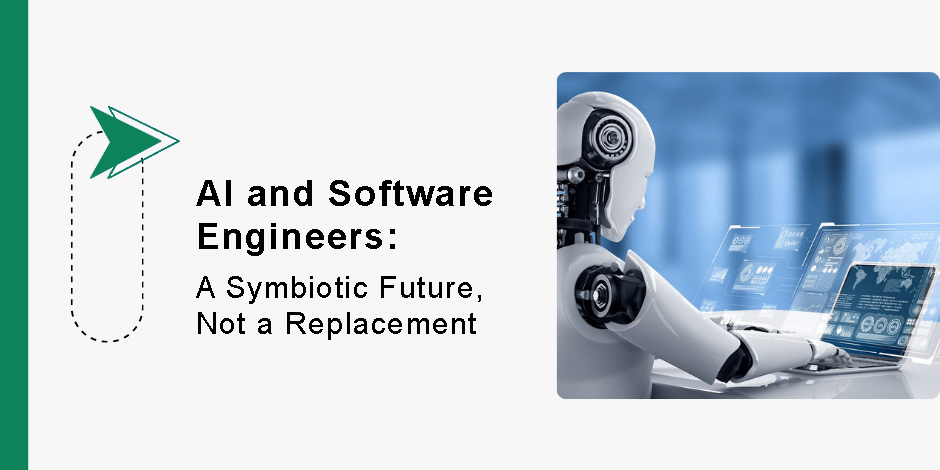In the ever-evolving landscape of technology, the rise of Artificial Intelligence (AI) has sparked conversations about its potential impact on various industries, including software engineering. While some fear that AI could replace human programmers, a closer examination reveals a more nuanced reality: a future where AI and software engineers work together, amplifying each other’s capabilities.
AI as a Powerful Tool for Software Engineers
AI has already become an indispensable tool for software engineers, streamlining various aspects of their work:
- Code Generation: AI-powered tools can generate code snippets or even entire functions based on natural language prompts, significantly reducing development time.
- Debugging: AI algorithms can efficiently identify and fix bugs in code, freeing up engineers to focus on higher-level tasks.
- Testing: AI can automate testing processes, ensuring software quality and reliability.
- Predictive Analytics: AI can analyze vast amounts of data to predict potential issues and optimize software performance.

The Evolving Role of Software Engineers
As AI continues to advance, the role of software engineers is not diminishing but evolving. Instead of being replaced, they are becoming more strategic, creative, and focused on problem-solving. Here’s how:
- Strategic Thinking: Engineers will need to understand the broader business context and leverage AI to develop innovative solutions that drive growth.
- Creative Problem-Solving: AI can handle routine tasks, allowing engineers to concentrate on complex problems that require human ingenuity and creativity.
- Ethical Considerations: As AI becomes more integrated into software development, engineers will need to address ethical implications, such as bias and fairness in algorithms.
- Continuous Learning: The rapid pace of technological change necessitates lifelong learning. Software engineers will need to stay updated on AI advancements and acquire new skills to remain competitive.

The Human Touch Remains Essential
While AI can automate many tasks, it cannot fully replicate the human ability to understand context, make nuanced decisions, and empathize with users. Here are some areas where human expertise remains irreplaceable:
- Complex Problem-Solving: AI excels at pattern recognition and data analysis, but it often struggles with unstructured problems that require innovative thinking.
- User Experience Design: Creating intuitive and engaging user interfaces requires a deep understanding of human psychology and behavior, which AI cannot fully replicate.
- Ethical Decision-Making: AI algorithms can be biased, and it’s up to human engineers to identify and mitigate these biases.
- Teamwork and Collaboration: Effective software development often involves collaboration among diverse teams, and humans are still the best at fostering teamwork and building strong relationships.

A Collaborative Future
The future of software engineering is not a zero-sum game between humans and AI. Instead, it’s a collaborative partnership where AI augments human capabilities, leading to more efficient, innovative, and reliable software solutions.
Conclusion
AI is not here to replace software engineers but to empower them. By embracing AI as a tool and focusing on developing skills that complement AI’s strengths, software engineers can thrive in the digital age. The future of software development is bright, and the collaboration between humans and AI will be a key driver of innovation.



